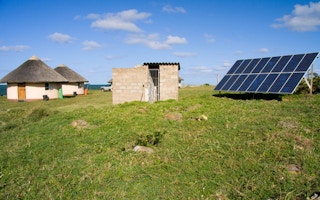A multi-billion dollar fund set up by the United Nations to help poor countries tackle climate change on Friday approved its first eight projects, which will receive $168 million, a key step before a global climate summit starts on Nov. 30.
The Green Climate Fund (GCF) has $10.2 billion in pledges and is a key ingredient for a UN climate accord. The Paris summit runs from Nov. 30 to Dec. 11.
The fund will be one of the main channels for donor countries to mobilise over $100 billion a year in aid for developing nations by 2020 from public and private sources.
“These approvals of the initial projects mark the final building block of operationalising the Green Climate Fund,” Héla Cheikhrouhou, executive director of the Fund, told Reuters.
“Starting this next phase will send a very positive signal to the international community before Paris.”
The first projects selected are meant to spur clean energy technology deployment and strengthen the ability of poor countries to guard against the impacts of climate change.
The fund approved $12.3 million to improve early warning systems to help the African country of Malawi to respond to extreme climate events.
It also approved $23.6 million to manage climate change-induced water shortages in the Maldives in the Indian Ocean and $217 million for an green bond to spur renewable energy investment in Latin America.
But some civil society groups who participated in the GCF approval process believed it was rushed ahead of the Paris summit and lacked transparency. Cheikhrouhou disagreed and said the GCF provided expansive documentation “well in time.”
The eight-project shortlist had been narrowed down from 37 applications and published on the GCF website on Oct. 15. The GCF board’s approval meeting in Zambia started Nov. 2
This left little time for board members, including non-government organisations, to review the projects, said Liane Schalatek, associate director of the Heinrich Böll Foundation North America.
“You have to be extremely careful that you are not setting bad precedents with the first couple of projects that you are looking at,” she said.
One of the projects approved on Friday to improve wetlands resilience in Peru that received $6.2 million raised red flags for environmental groups, who warned that indigenous communities may not have been properly consulted.
“The appropriate decision would have been to delay any approval until the Green Climate Fund is absolutely sure that rights will not be violated,” said Brandon Wu, senior policy analyst for ActionAid USA.
“By taking a hasty decision now - even with conditions around further consultation - the Fund is entering very risky territory.”










